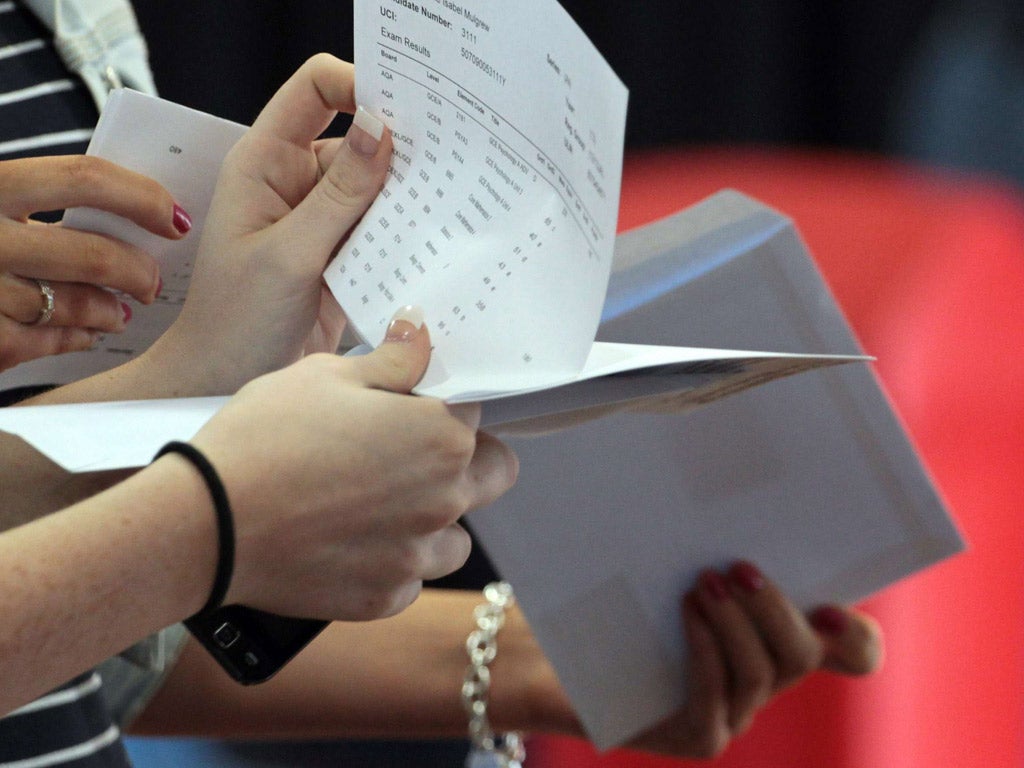
It seems a cruel thing to release A-level results so late as August: the waiting and the unease can be awful.
If the prospect of a few missed marks is hitting you right in the gut, assign an afternoon to the checklist below, and clearing will go just that little bit more smoothly.
Make sure you’re around
But seriously, do. Put 15 August into every calendar you have, online and offline, and don’t make any commitments. Clear a week or so afterward too, as contrary to misprinted information, clearing isn’t always over by afternoon tea.
Think about alternatives
Unlikely, I grant you, but if your top universities converted into hair-salons, what would you do? A well-educated haircut won’t get you very far. Would another university be right for you? Where else would you go? Does it make sense to get a year of practical experience in your chosen field before you study it? Or if your course was dropped – what else would you study? Would you consider an apprenticeship? Would a year out suit better? What alternate routes will allow you to end up with the same career?
Once you’ve played a game of mental squash and bounced around these questions, should your A-levels be a little below par, you’ll be much better placed to answer them again when they inevitably flood your brain. Know what you’re looking for and clearing becomes a much simpler process, without all the advertised fluster.
Do the hard work now
There is no way of knowing who will be offering what courses, but research the universities and courses you like now and keep the details to hand. Your bookmark bar is invaluable. Then, should a course you think you may like appear in the clearing list, you can doublecheck the details and jump at the opportunity. Many universities already have clearing pages live explaining their process and providing the key numbers and emails you’ll need. Don’t spend results day frantically Googling – do it all now.
Tip: when you’re researching subjects, find the course codes too – courses can have similar names but wildly different content, so be sure which you want to do.
Know your grades
In clearing, it doesn’t all boil down to your A-levels. AS results and GCSEs may be considered too, including individual modules. In part, clearing is about selling yourself – it pays to know the product.
This stands for your other details too - a university is less likely to believe you've got untapped potential if you can’t remember your own name or UCAS number.
Update your personal statement
Because if you’ve done something marvellous since you originally scribbled the thing, don’t you want a uni to know about it? Or, if your personal statement was tailored to one direction but you’re now considering others, an update may be necessary.
If you know the reasons why you’re attracted to other courses (and you should, as they’ll ask!), then any personal statement changes should come easily.
Bookmark, bookmark, bookmark
UCAS Track is obviously the most important site to have here, along with the universities and courses mentioned above. There’s a lot of information regarding clearing floating around the web too.
Make a note of your UCAS Track login details, or it’ll just be another hurdle to get panicky over.
Become a phone guru
Made a shortlist? Save your favourite universities as contacts – it’ll save vital moments when you’re in the throes of things and you’re less likely to smash your phone up after dialling the wrong number 103 times.
One number really worth saving is the Exam Results Helpline, where independent advisors can talk through clearing, adjustment, what your results mean and what options there are. They’re run by the Department for Education, but don’t let that put you off. You can even call them beforehand as the lines open on the 6 August. The number – get a pen, write it down – is 0808 100 8000. It’s free and impartial.
Learn how to record calls
There’s an app for that, obviously. If in doubt, use a laptop and phone using loudspeaker. Either way, make sure you know how to do it – and of course, let the advisor know you’re recording when you do call. Recording means you’re not left wondering ‘wait, do I have two hours or two days to call back?!’
You should email to confirm your new place through clearing, too, so having the email recorded means you can’t write to the wrong address.
...and know where you’ll call from
Absurd as it sounds, find the spot in the house you’ll work from. Is the Internet a bit slow upstairs? Does your reception crackle in your bedroom? Does the sun glare off your laptop screen in the conservatory? Little things, but unnecessary annoyances.
Any questions? Prepare them
If you hang up on the call only to think ‘Oh! What about…’ you’ll go right back to the start of the queue when you ring back - and that’s more hold music than is healthy. Preparation is king.
And don’t forget a stress ball.
David Ellis is the editor of student finance website studentmoneysaver.co.uk. He tweets here.
Subscribe to Independent Premium to bookmark this article
Want to bookmark your favourite articles and stories to read or reference later? Start your Independent Premium subscription today.

Join our commenting forum
Join thought-provoking conversations, follow other Independent readers and see their replies